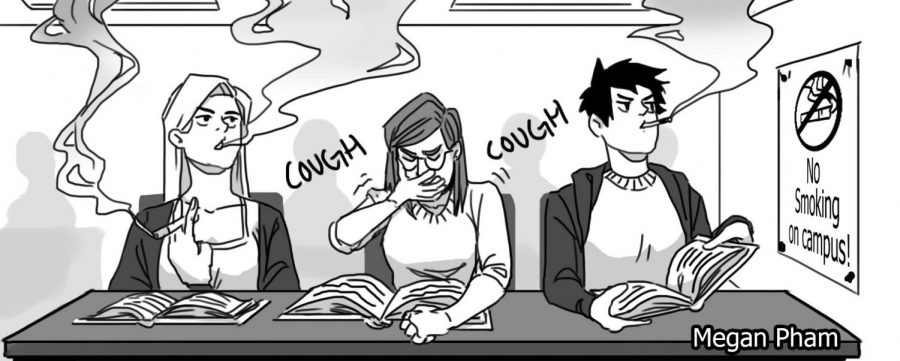Vaping delays teenage brain development
January 19, 2018
Electronic cigarettes, originally created to offer an alternative to cigarettes for smokers, have become increasingly popular among teenagers and may have dangerous side effects.
New vapes, such as JUULS and Phixes, are popular among teenagers because they are more discreet than a normal e-cigarette.
In an NPR article, “Teenagers Embrace JUUL, Saying It’s Discreet Enough to Vape in Class,” written by Angus Chen, a teenager said that 50 to 60 percent of her friends have a JUUL.
Chen said, “E-cigarettes can deliver a very high concentration of the drug, and experts worry that the popularity of vape pens is putting a new generation at risk of nicotine dependence.”
There are reports of teenagers using their JUULS in class because one can fit in a fist and does not let out as much smoke as an e-cig.
What many teenagers don’t know is that one JUUL pod has the nicotine equivalent of one pack of cigarettes.
Though the long-term effects of vaping are not known, studies have been done to know the effects of nicotine on teenage brains.
In the article “Short- and Long-Term Consequences of Nicotine Exposure during Adolescence for Prefrontal Cortex Neuronal Network Function,” authors Natalia Goriousnova and Huibert Mansvelder said that “because nicotine acts directly on the pathways involved in cognitive control, development of the prefrontal cortex during adolescence may be affected by nicotine exposure.”
The article said, “Smoking during adolescence increases the risk of developing psychiatric disorders and cognitive impairment in later life” and “adolescent smokers suffer from attention deficits.”
In a Boston Globe article, “Is Vaping Hazardous to Your Health?” author John Pacenti said, “E-cigarette use among youth has increased 539 percent since 2011.”
In the article, Dr. Alina Alonso, Florida public safety official, said, “Many of the teens feel the vapes are safe because they are flavored with cherry and all kinds of chemicals in it, but they definitely are not safe.”
Because vaping has been so normalized, it is not looked upon with the same discouragement cigarettes are.
In a Chicago Tribune article, “As More Teens Vape, Surgeon General Sounds Alarm on E-cigarettes,” author Dean Schraufnagel said, “The culture of tobacco smoking has changed dramatically from 50 years ago.”
Schraufnagel explained that it is important for people to be as careful vaping as they would be with smoking.
Not only does vaping have negative impacts on adolescent development, but in a Forbes article, “Teens Vaping E-Cigarettes Up to Seven Times More Likely to Smoke Later, But Not Vice Versa,” author Tara Haelle said, “Teens who use e-cigarettes are more likely to smoke tobacco cigarettes later on—but the opposite wasn’t true.”
Haelle suggested taking popular teenage vape juice flavors off the market to discourage use.

